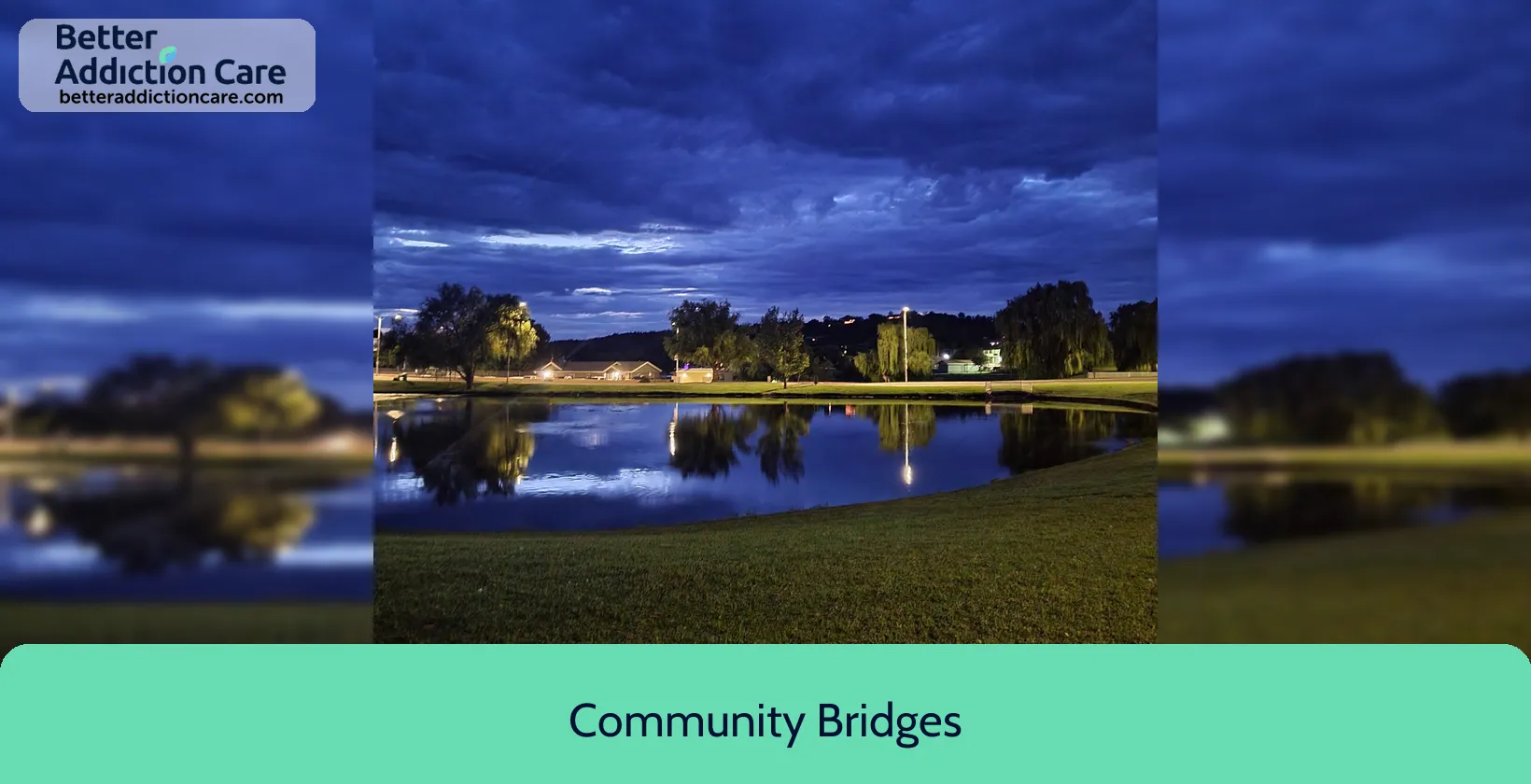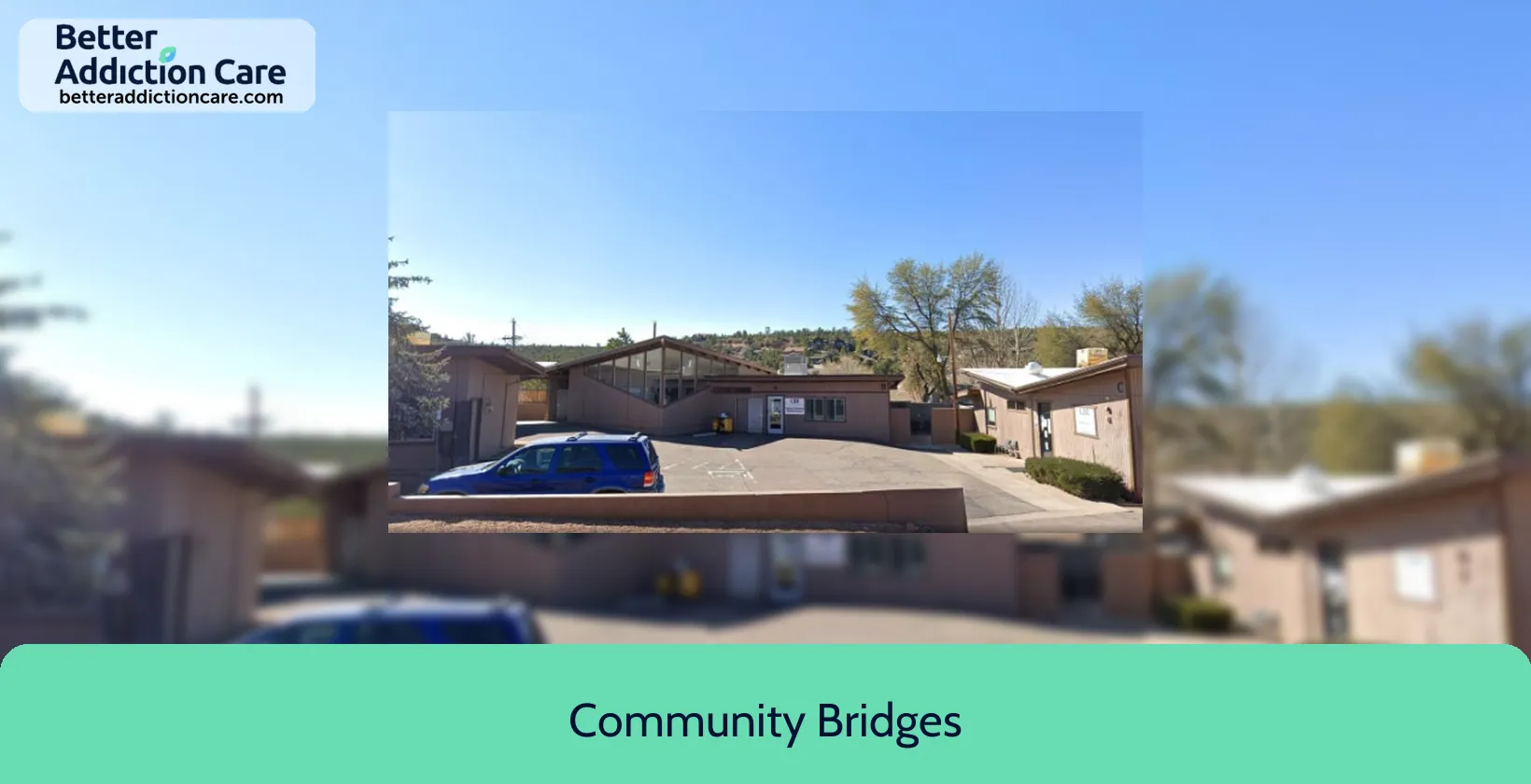Overview
Community Bridges - Outpatient is a comprehensive addiction treatment facility that offers a variety of programs to assist people on their path to recovery. It is situated in Payson, Arizona. This facility is committed to provide safe, medically supervised detoxification to those attempting to kick heavy drug addictions. Recognizing how crucial safety is during detox, the program makes sure participants get the medical care they need to properly manage their withdrawal symptoms.
Community Bridges - Outpatient uses an integrated approach to therapy to address the clients' more general needs in addition to providing detox treatments. This involves providing case management services, in which qualified experts walk clients through each stage of the rehabilitation process. After clients complete the program, the center places a strong emphasis on helping them build coping mechanisms and life skills that they may use in their daily lives. With this all-encompassing approach, clients are given the tools they need to stay sober and start over in their new lives.
Community Bridges - Outpatient is a dual diagnosis facility that focuses on treating co-occurring mental health conditions in addition to addiction. This comprehensive treatment paradigm acknowledges the commonality between mental health and drug use problems and the potential benefits of treating both at the same time for better long-term recovery results.
The outpatient program at the clinic is intended to be flexible while yet offering necessary assistance. In order to facilitate rehabilitation, clients engage in a variety of therapeutic programs, such as group and family therapy. In particular, family therapy enables individuals to include their loved ones in their healing process, promoting acceptance and support within the family. Group therapy provides a safe space for patients to talk about their experiences and get advice from others going through comparable difficulties.
Community Bridges, Inc. takes great satisfaction in providing mental health and addiction therapy via an all-encompassing, comprehensive approach. Since every person's road to recovery is different, the facility creates treatment programs that are specifically tailored to each person's requirements and characteristics. Through the integration of education, counseling, housing, medicine, peer support, and other supporting services, the program guarantees that each client receives individualized treatment intended to engender hope and enhance long-term rehabilitation.
Community Bridges at a Glance
Payment Options
- Cash or self-payment
- Medicaid
- Medicare
- State-financed health insurance plan other than Medicaid
- Private health insurance
Assessments
- Screening for tobacco use
- Comprehensive mental health assessment
- Comprehensive substance use assessment
- Interim services for clients
- Outreach to persons in the community
Age Groups
- Adolescents
- Children/adolescents
- Young adults
- Adults
- Seniors
Ancillary Services
- Intensive case management
- Case management service
- Chronic disease/illness management
- Court-ordered outpatient treatment
- Diet and exercise counseling
Highlights About Community Bridges
7.49/10
With an overall rating of 7.49/10, this facility has following balanced range of services. Alcohol Rehabilitation: 8.00/10, Drug Rehab and Detox: 8.15/10, Insurance and Payments: 6.00/10, Treatment Options: 7.82/10.-
Drug Rehab and Detox 8.15
-
Alcohol Rehabilitation 8.00
-
Treatment Options 7.82
-
Insurance and Payments 6.00
Accreditations
State mental health department:
State mental health department accreditation refers to the process of evaluating and certifying the quality and standards of a state's mental health department, ensuring that it provides high-quality services and meets specific criteria for mental health care. The accreditation process is performed by a third-party organization and helps to improve the overall care and treatment of individuals with mental health conditions.
State department of health:

Government agencies issue State Licenses, granting rehabilitation organizations permission to operate their businesses lawfully within specific geographic regions. The specific licenses needed for legal operation are typically determined by the type of rehabilitation program offered by the facility and its physical location.
Commission on Accreditation of Rehabilitation Facilities (CARF):

CARF accreditation is a prestigious recognition for organizations in rehabilitation and human services. It signifies that an organization meets rigorous quality standards and is committed to providing top-notch care. Achieving CARF accreditation involves a thorough evaluation process, including on-site surveys, to ensure excellence in programs and services. This accreditation boosts an organization's credibility, assures clients and funders of quality, and promotes ongoing improvement in the field of rehabilitation and human services.
SAMHSA certification for opioid treatment program (OTP):
SAMHSA's Opioid Treatment Programs (OTP) accreditation is a prestigious recognition that signifies a program's compliance with stringent standards and guidelines established by the Substance Abuse and Mental Health Services Administration (SAMHSA). This accreditation demonstrates an OTP's commitment to providing high-quality, evidence-based care for individuals struggling with opioid use disorder (OUD). It serves as a trusted symbol of accountability and excellence, assuring patients, families, and communities that the OTP offers safe, effective, and comprehensive treatment options for OUD.
Drug Enforcement Agency (DEA):
DEA accreditation refers to the process by which a law enforcement agency is recognized by the Drug Enforcement Agency (DEA) as having met specific training, operational, and resource requirements necessary to participate in DEA-led drug enforcement efforts. This accreditation allows the agency to perform DEA-related tasks such as conducting investigations, executing federal search warrants, and participating in joint task forces.
Treatment At Community Bridges
Treatment Conditions
- Alcoholism
- Mental health treatment
- Substance use treatment
- Co-occurring Disorders
- Opioid Treatement
Care Levels
- Hospital inpatient treatment
- Outpatient
- Outpatient detoxification
- Outpatient methadone/buprenorphine or naltrexone treatment
- Outpatient day treatment or partial hospitalization
Treatment Modalities
- Individual psychotherapy
- Couples/family therapy
- Cognitive behavioral therapy
- Dialectical behavior therapy
- Integrated Mental and Substance Use Disorder treatment
Ancillary Services
Languages
- Sign language services for the deaf and hard of hearing
Additional Services
- Pharmacotherapies administered during treatment
- Mentoring/peer support
- Breathalyzer or blood alcohol testing
Special Programs
- Clients with co-occurring mental and substance use disorders
- Persons 18 and older with serious mental illness (SMI)
- Clients with co-occurring pain and substance use disorders
Contact Information
Read our Most Recent Article About Drug Addiction
DISCLAIMER: The facility name, logo and brand are the property and registered trademarks of Community Bridges, and are being used for identification and informational purposes only. Use of these names, logos and brands shall not imply endorsement. BetterAddictionCare.com is not affiliated with or sponsored by Community Bridges.










